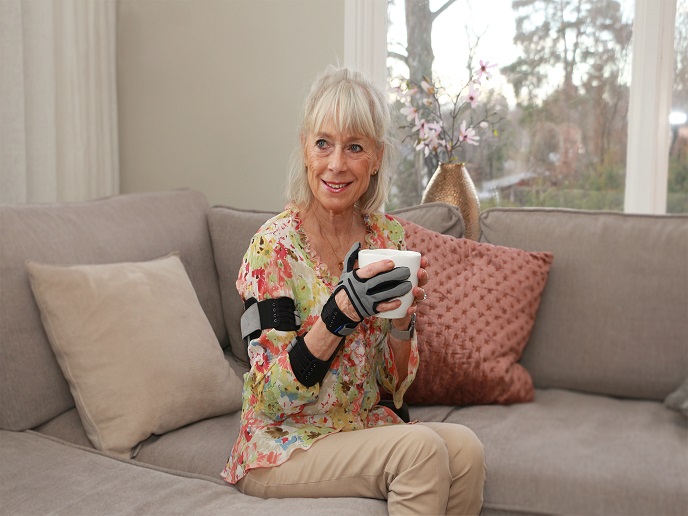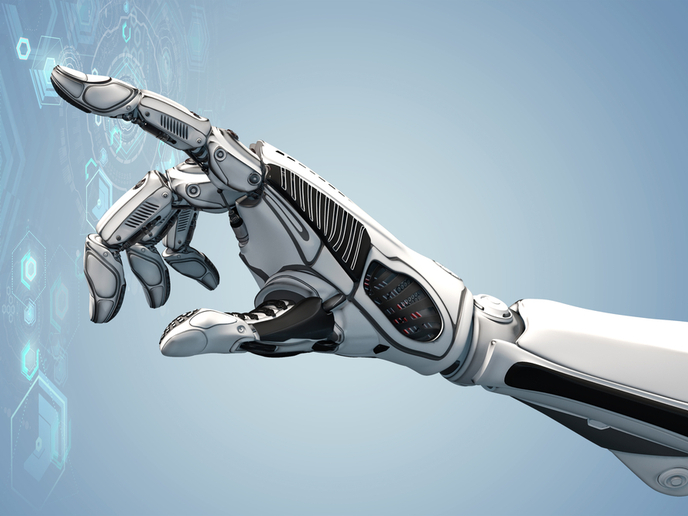A robotic glove for support of healthy individuals and people with hand impairments
Musculoskeletal conditions(opens in new window) are a key cause of disability, reducing dexterity, productiveness at work and participation in social activities. One in three people suffering from musculoskeletal disorders experience muscle or joint pain in the wrist or hand. The prevalence of these conditions increases with age, so population ageing is expected to make this a significant economic burden.
A soft robotic glove for everyday use
The iHand(opens in new window) project was designed to address this problem by developing a rehabilitation glove for people with impairments in the wrist/hand. “The iHand soft robotic glove can add extra strength to the grip for individuals with reduced hand function, providing assistance during activities of daily living,” explains Annika Rydgård, on behalf of the Bioservo(opens in new window) team that developed iHand. The iHand incorporates a pressure sensor at the glove’s fingertips, which records when the user grasps an object. An embedded processor that mimics the human brain calculates the force that needs to be added, while a power actuator works as muscles to generate the force that is transferred to the limbs. So, the glove detects the user’s intention and dynamically provides the force needed to perform the activity. And the more force is needed for the grip, the more force the glove provides. iHand was tested by 63 participants for 6 weeks at home during daily living activities. After the intervention period, individuals demonstrated an increase in the mean grip strength which they retained upon follow-up, indicating a therapeutic effect of the glove. Moreover, an improvement in hand function was evident in tasks such as writing, feeding and lifting of large heavy and light objects.
iHand advantages and prospects
The conventional standard of care for rehabilitation of impaired hand function is physiotherapy, carried out at home or in a clinic. iHand offers a unique solution for rehabilitation at home. The glove has a slim design and feels like a regular glove, which increases its usage during the day, leading to greater empowerment and independence. According to Martin Remning Wahlstedt: “The project allowed us to improve the comfort and functionalities of the iHand gloves, which has led to better user acceptance.” The new version facilitates self-management of health and provides people with the opportunity to live independently. This contributes to a better quality of life and reduces the cost of healthcare services. Importantly, its implementation early on will minimise the need for long-term care, cutting down on healthcare costs. The iHand project has enabled Bioservo to industrialise and demonstrate a soft robotics platform for hand/grip function that can be used as a preventive, assistive or rehabilitation device. Future activities focus on exploitation and global dissemination to expand the network and increase sales of the company’s products and services.







